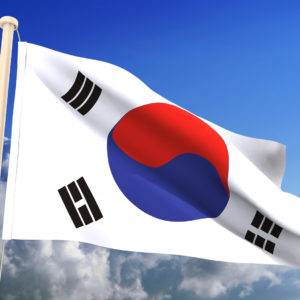History plays strange tricks. The heroes of today aren’t necessarily heroes years later. And the villains whom the mob taunts with insults and worse are not always seen that way long after they’re gone. The ups and downs of modern Korean history have experienced many reversals in the verdicts of history.
The judgment on the South Korean dictator Park Chung-hee is a case in point. During the 18 years and five months in which he held power before his assassination in October 1979, he was increasingly the target of criticism not only by local politicians but also by outspoken foreign missionaries and then by activists around the world. Members of the U.S. government were particularly critical in briefings with American journalists about what they viewed as his dictatorial rule.
Now, more than four decades later, Park is remembered as one of Korea’s great leaders, perhaps the greatest. The reason is it was in his time in power, from when he took over the government from civilian leaders on May 16, 1961, that Korea’s economy really began its rapid growth from the ruins of the Korean War to the status of a global powerhouse.
Park is credited with igniting the growth of the mighty chaebol or industrial groups that powered the Korean economy. He may have been a dictator, repressing free speech and free choice in elections, but in that atmosphere, the mighty chaebol rose as competitors in fields ranging from motor vehicles to ship-building to electronics. The names of Korean manufacturers are now known around the world.
It is possible to look back with distinctly mixed feelings on the records of other Korean leaders. That brings us to the case of Park’s daughter, the much-maligned Park Geun-hye, ousted, impeached, jailed, and now freed by her arch-foe, Korea’s President Moon Jae-in, after four years and nine months in prison. She has written quite movingly, and convincingly, of her own record as president.
Pilloried in demonstrations by hundreds of thousands in central Seoul, Park was basically defenseless against the forces ranged against her. You get the impression she didn’t really know what she was doing when accused of corruption in the web woven by her close friend, a woman named Choi Soon-sil, still in prison.
The real story of all that happened during the Park presidency, and then of her prosecution, has yet to be written. Park acknowledged as much in a letter that was published on the day Moon freed her while she remained in a hospital. “I believe even a tangled ball of thread will unravel itself strand by strand,” she was quoted as writing.
One can go much deeper into Korean history to find leaders who were later rehabilitated in the public consciousness after having been treated with contempt during their presidency. The first president of the Republic of Korea as an independent nation in August 1948 was Syngman Rhee, a proud nationalist who somehow survived the Korean War after all appeared lost.
Rhee is remembered by some scholars as a cruel tyrant who depended on the Americans to turn back the North Korean invasion of June 1950. Certainly, the new nation would have crumbled beneath the onslaught had President Harry Truman failed to respond at once to what he told Americans was a “police action.”
Yet Rhee’s single-minded determination on behalf of South Korea cannot be forgotten. Having refused in July 1953 to join in negotiations for a Korean War truce that he feared would result in the permanent division of the Korean peninsula, he remained president until he was overthrown in the student revolution of April 1960. The result was an experiment in democracy that ended more than a year later in a coup perpetrated by Park Chung-hee.
It’s easy to criticize both Rhee and then Park Chung-hee for their actions toward people whom they saw as blocking the way to freedom and prosperity. Academic figures detest both of them, but in their own ways, they both had much to do with Korea’s march not only to economic success but finally to democracy.
That’s a result that no one would have expected when they both were denigrated by activists who saw them as sinister and cruel. The final story has yet to be written, but there’s no doubt they both contributed to turning the Republic of Korea into a global force – and also a democracy.

